It may seem strange that the king of ecommerce is bothering at all with old-school, brick-and-mortar retail, let alone a self-checkout store. Many online retailers, however, have found that the secret to long-term success involves a combination of “bricks and clicks,” i.e., both a traditional and a virtual market presence.
Of course, this is not Amazon’s first foray into physical retail. The company already has a handful of retail stores. A main reason for these tangible outlets is that, as convenient as ecommerce may be, there are certain things that people want NOW, and they’re not willing to wait overnight or even a few hours, if same-day delivery happens to be possible. In sum, Amazon doesn’t want to miss out on the market for immediacy.
With its new “Amazon Go” store the company has taken ‘fast’ a big step further by eliminating the checkout line. Here’s how the “Just Walk Out Technology” works. Amazon account holders download the free Amazon Go app and scan their smartphones when entering the store. Every item they choose from store shelves, then, is automatically placed in their virtual shopping cart by means of “the same types of technologies used in self-driving cars: computer vision, sensor fusion, and deep learning.” When customers exit the store, the system charges their Amazon accounts and sends them receipts for their purchases, all without them ever entering a checkout line.
What can people buy at this one-of-a-kind store that claims “The world’s most advanced shopping technology”? At this point, the options are mainly grocery items, including Amazon Meal Kits. It makes sense for Amazon Go to focus on food because edibles are what people most often want to get quickly; they certainly don’t want to wait the days or weeks it takes to receive some goods from Amazon.com.
But, a cashier-less store is a potential cause for concern, for at least a few reasons. First and foremost, it seems like the technology could be taking workers’ jobs. People get paid to run cash registers and otherwise help check others out of stores. Granted, Amazon isn’t a big brick-and-mortar retailer now, but that seems to be changing. After opening its first Amazon Books store in Seattle in November 2015, the company now operates in a dozen more locations scattered throughout the U.S., with plans to open several more soon.
Even if Amazon doesn’t implement cashier-less checkout in its Books stores, or it fails to make its Go stores as ubiquitous as McDonald’s restaurants, the employment impact of the technology will still spread. It’s likely that other retailers and technology companies are already working on their own versions of Just Walk Out Technology that one or more of them will pilot in the near future. Then, after fixing the flaws, the technology will likely penetrate more and more retail sectors, just like self-checkout spread from grocery stores to big box retailers and beyond.
So, there’s potential that not just a few dozen, but thousands, tens of thousands, or more cashiers could be displaced. For instance, there are over 154,000 convenience stores in the United States. If just 10% of those stores adopted something akin to Amazon’s Just Walk Out Technology, and each store employed four cashiers, there would be over 61,000 people out of work.
Such projections make cashier-less shopping or any technology that replaces human labor sound bad, but is it really? Just a century or so ago, many people were employed in basic manual tasks, like digging holes, ditches, etc. If you’ve ever dug a hole of a significant size in solid ground, you know it’s a very strenuous task.
Thankfully, ingenious individuals invented machines like the bulldozer and backhoe that dig far more effectively than even a hoard of humans with shovels. Did that technology take jobs away from people who could dig? Yes. But that displacement was ultimately for their own good, as well as the good of society. Few people want to make a living digging holes by hand. It’s much less strenuous and more stimulating to operate the machinery that does the digging, or to plan where the digging should be done, or to build the homes, highways, etc. that use the holes and help drive the economy.
Of course, being a cashier demands a broader range of skills than digging a hole; yet, most cashiers probably would welcome the opportunity to do work with more variety or challenge, maybe after receiving some additional training or education. Regardless, we all must recognize that technological advancements have changed the way people have worked for millennia, and they will continue to do so. What’s more, that rate of change may be increasing when one considers recent innovations in areas such as robotics, virtual reality, and artificial intelligence.
Someone who knows something about technology and job creation is Microsoft founder and philanthropist, Bill Gates. The software that Gates developed decades ago and the advancements it supported, inevitably led to the displacement of workers whose job skills were passé.
However, that technology also created thousands upon thousands of new and more engaging employment opportunities for individuals who learned to leverage that technology. In an interview with Fox Business, Gates suggested that the same cycle of economic growth and job reassignment will continue in the wake of the latest applications of new tech.
Amazon Go is a ‘prime’ example of technological advance sparking job skill evolution and likely economic growth. Although the store doesn’t have cashiers, it employs a variety of other individuals in meaningful work that includes making the retailer’s ready-to-eat food and offering customers product recommendations. What's more, people are needed to build, install, and maintain the Just Walk Out systems.
Amazon isn’t guilty of eliminating jobs; rather it’s created new and more interesting opportunities for individuals, particularly for ones who embrace technology and invest in their own professional development. In sum, Amazon Go checks out as “Mindful Marketing.”
Learn more about the Mindful Matrix and Mindful Meter.
Check out Mindful Marketing Ads and Vote your Mind!

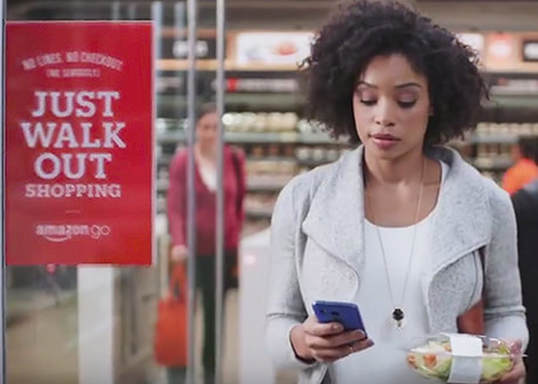
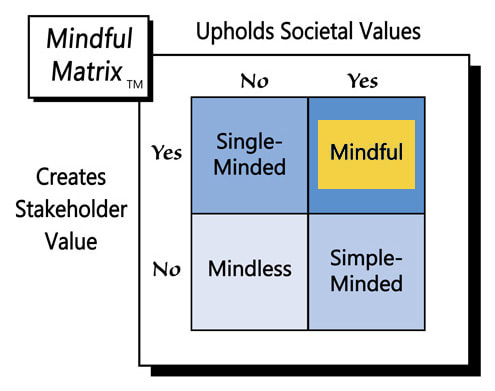
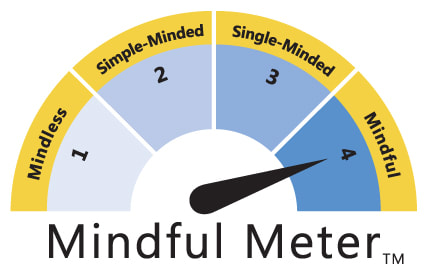
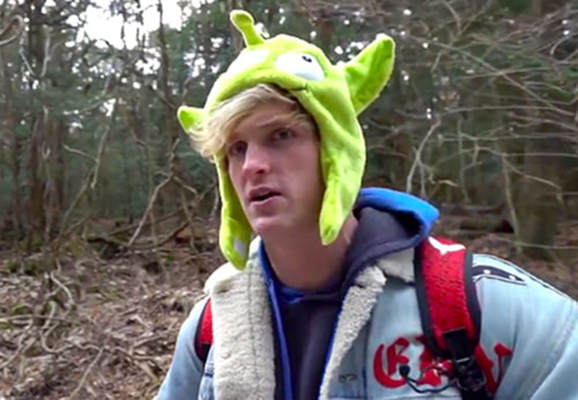
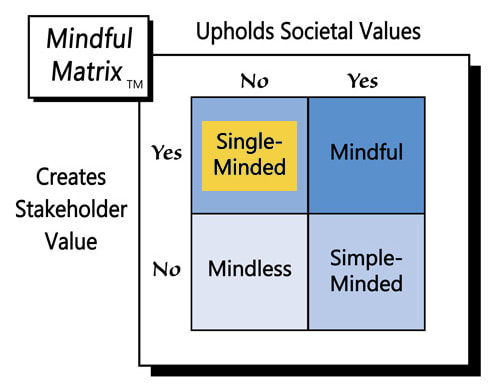
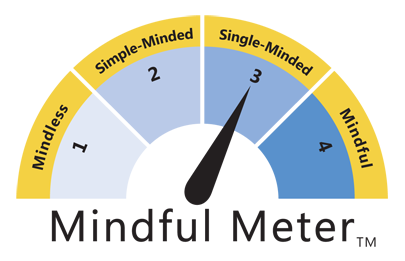
 RSS Feed
RSS Feed